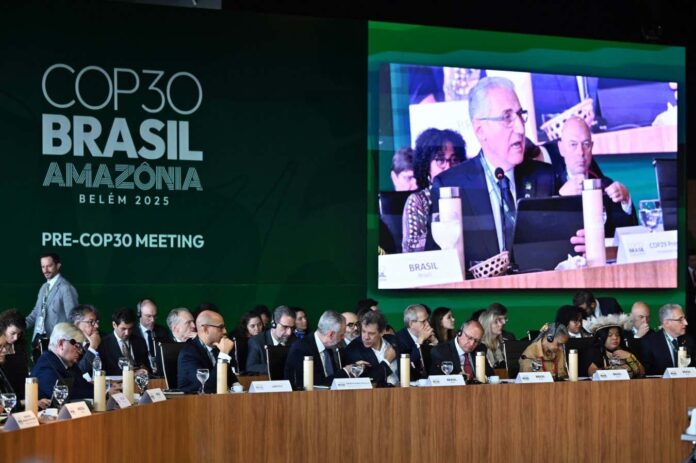The world’s leaders are poised to gather for the latest UN climate conference, COP30, in Belém, Brazil, but the prospects for meaningful progress appear bleak. A decade after the landmark Paris Agreement, the 1.5°C target is slipping out of reach, and even the less ambitious 2°C goal is looking increasingly distant. Optimism among negotiators is in short supply.
The Current Trajectory: A Looming Crisis
Based on current national pledges (known as Nationally Determined Contributions or NDCs), the United Nations Environment Programme estimates that the world is on track for a warming of 2.3 to 2.5°C by the end of this century. This level of warming carries severe consequences, including irreversible damage to oceans, forests, and polar ice sheets—potentially triggering tipping points with cascading global impacts. To avert this, concrete action is urgently needed to transition away from fossil fuels and secure the estimated $1.3 trillion annually required by 2030 to assist poorer nations in both slowing climate change and adapting to its effects.
Diminished Expectations and a Fractured Climate Process
The political climate is far more challenging than it was in 2015 when the Paris Agreement was struck. Manuel Pulgar-Vidal, global leader of climate and energy at WWF, underscores the complex threat to climate discussions: “The climate debate is clearly under threat, not just from political decisions but economic, financial and trade decisions too.” Last year’s COP29 summit in Baku, Azerbaijan, highlighted these difficulties, ending with a commitment to finance that fell far short of what poorer nations had hoped for. Consequently, faith in the COP process has eroded, prompting discussions about whether the current model is fit for purpose.
Obstacles to Progress: Geopolitics, Economics, and Shifting Priorities
Several factors impede progress. Rising geopolitical tensions and trade wars spill over into climate diplomacy. The US, under President Donald Trump, has actively resisted climate action, withdrawing from the Paris Agreement and vetoing efforts to limit fossil fuels. This has destabilized international cooperation, as seen with the International Maritime Organization delaying a plan to cut shipping emissions after Trump threatened sanctions. Simultaneously, slow economic growth, rising living costs, and the rise of anti-incumbent populism make it politically difficult for leaders to embrace climate-friendly policies.
Brazil’s Role: Controversies and Pragmatic Approaches
As the host nation, Brazil—led by President Luiz Inácio Lula da Silva, who campaigned on protecting the rainforest—faces its own challenges. Despite his commitment, Lula’s administration has approved new roads in the Amazon and oil exploration in the Amazon basin, prioritizing next year’s elections. The decision to hold COP30 in Belém has also proven controversial. Limited hotel space has resulted in soaring accommodation prices, forcing many NGOs, diplomats, and businesses to seek alternative lodging like tents and shipping containers. Additionally, UN limitations on accreditations raise concerns about reduced civil society participation, while oil and gas lobbies, with greater resources, may have more influence.
Finding Solutions: Coalitions and Local Initiatives
Despite the daunting obstacles, some signs of positive momentum are emerging. Concerns about insufficient leader attendance have been alleviated by last-minute travel decisions from figures like Keir Starmer of the UK. With multilateralism faltering, Brazil’s reputation as a bridge-builder could prove vital in holding the climate diplomacy process together. The Brazilian presidency is taking a pragmatic approach, prioritizing the implementation of existing agreements over grand pronouncements. Instead of pursuing headline-grabbing deals, Brazil aims to facilitate concrete actions. Thomas Hale at the University of Oxford suggests focusing on the growing climate actions taken by cities, regions, and companies – “coalitions of the willing” – which can drive significant progress, even in the face of global deadlock.
“Blockers like the US can sit on the sidelines, but that’s not where the groundswell of action is and it’s not where the real COP action will be,” states Hale. “We aren’t going to see an international decision at COP that will move us forward radically but it can still provide the framework for a lot of positive initiatives to arise.”
While the world shouldn’t anticipate major international breakthroughs in Belém, a focus on practical implementation and support for regional and local initiatives offers a path forward for climate action. The future of the planet may depend on it.
























